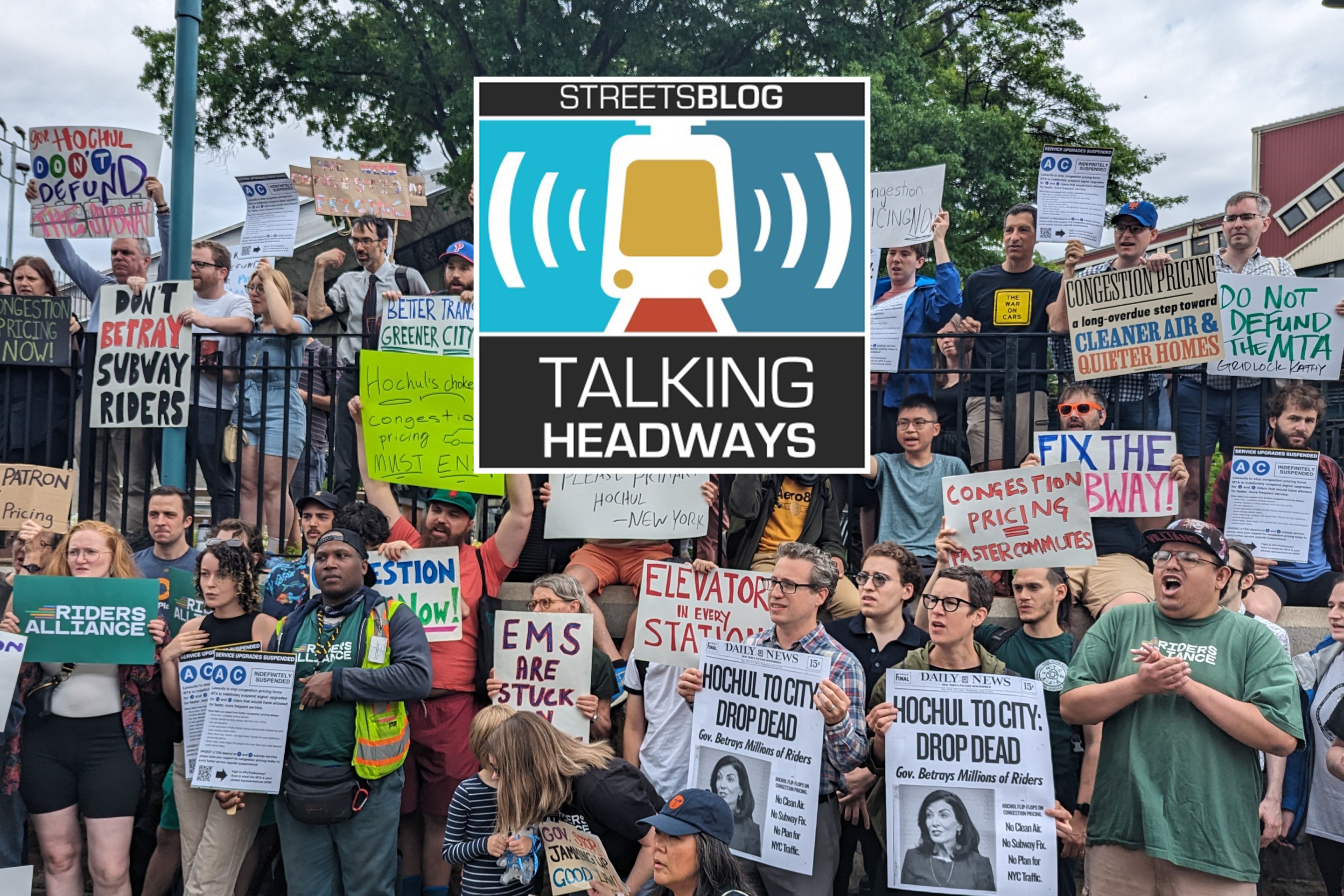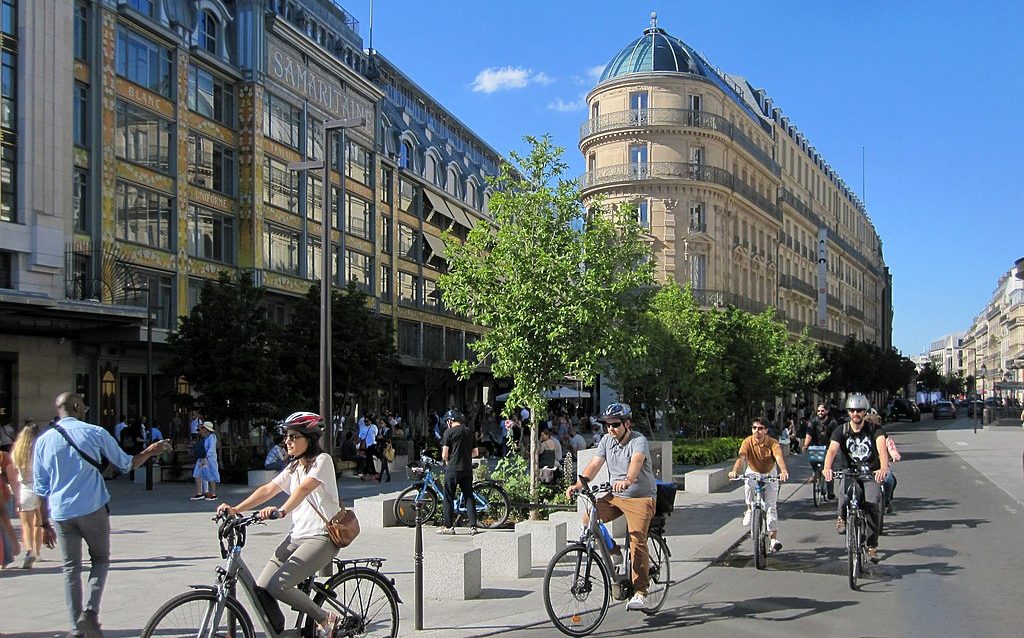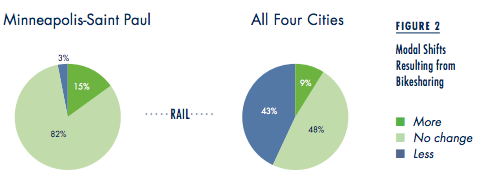
A new survey [PDF] by researchers at UC Berkeley and published in Access Magazine sheds light on how bike-share systems interact with transit.
Researchers Susan Shaheen and Elliot Martin surveyed more than 10,000 bike-share riders in Montreal, Toronto, Minneapolis-Saint Paul, and Washington, DC. Like previous surveys have shown, Shaheen and Martin found that a significant number of bike-share users reduce car use. But their main focus was how bike-share affects transit use.
The effect of bike-share on transit travel habits varied according to the context. As you might expect, in areas with sparse transit, bike-share offers an important "last-mile" connection. In areas with dense transit networks, bike-share serves as more of a substitute for transit, relieving crowding on packed buses and trains.
People who live in urban cores with well-developed rail systems -- like central D.C. -- are more likely to substitute bike-share for transit. In these areas, Shaheen and Martin note, bike-share may offer a more direct, quicker alternative to the bus or the train -- and that helps open up space on transit lines that need it most.
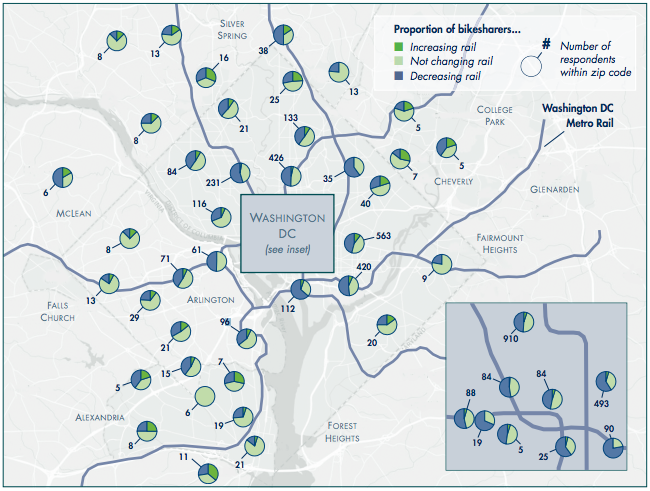
"By adding transportation alternatives, bikesharing opens up additional capacity on congested bus and rail lines in the urban core," they write. "Indeed, one reason Capital Bikeshare was launched in Washington, DC was to relieve congestion on the subway system."
The effect was different in Minneapolis-St. Paul, the region with the least developed transit system and most dispersed development patterns that the authors surveyed. There, 15 percent of bike-share users were more likely to use rail, compared to just 3 percent who were less likely.
At the time the survey was conducted in 2011, the region had only one light rail line. With a sparse rail network, providing a connection to the train becomes more of a core function for the bike-share system.
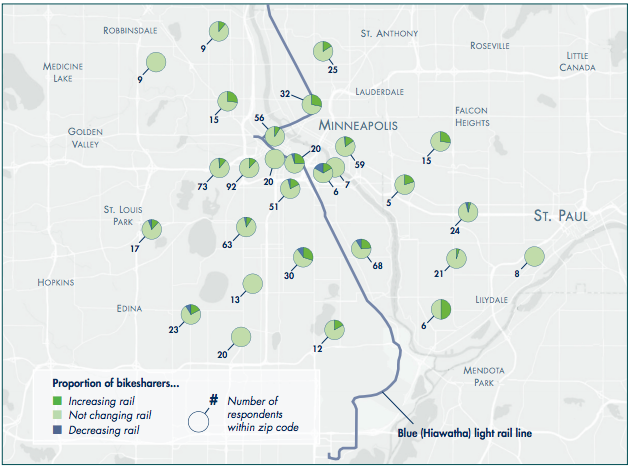
In smaller cities with less developed transit systems, bike-share is more of a "last mile solution," the authors concluded.


